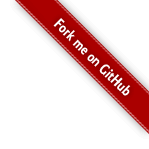Adblock
Adblock works in conjunction with BIND to configure and maintain a list of blocked DNS zones. It is similar to using a hosts file. DNS level ad blocking comes with two advantages:
It is possible to block entire zones rather than individual hosts. For example, blocking
doubleclick.netdrops all requests to any of their subdomains. This saves a lot of work for companies that use multiple subdomains to get around ad blocking or simply as a form of load balancing, as well as improves runtime performance as the block table is much smaller.The ad blocking DNS server can be installed on a network gateway and transparently block ads on the entire network, without requiring configuration of each computer.
Installation
First you need to install BIND if you don't already have it.
On Debian try apt-get install bind9.
Adblock knows how to install itself on FreeBSD, OpenBSD and Debian GNU/Linux. Other operating systems should be quite easy to add support for.
Clone the repository locally, then execute:
# with root privileges:
./install.sh
# without root privileges:
sudo sh install.sh
Adblock will copy its configuration files and print the location where they are installed. At the bottom of the output will be a command similar to the following which you can run verbatim on a standard system:
echo 'include "/etc/bind/named.conf.adblock";' >> /etc/bind/named.conf.local
You can also edit the installed adblock zone, whose path will be similar to
/etc/bind/db.adblock, if you wish to resolve blocked domains to a
different IP than 127.0.0.1.
Finally restart BIND for the changes to take effect
(/etc/init.d/bind9 restart, etc.).
If you are installing adblock on a network gateway, most likely no further configuration is needed. Try blocking a domain:
adblock doubleclick.net
BIND Forwarders
If you are installing adblock on a laptop there is an extra step which is configuring dhclient and BIND forwarders. This makes the laptop use its local BIND instance first for DNS resolution, providing ad blocking functionality, but then forwards DNS queries to DNS servers specified for the local network. The last step is necessary as some networks do not allow using external DNS servers for name resolution.
Find the BIND configuration file that contains a forwarders declaration, it will often be commented out:
# FreeBSD
grep -r forwarders /etc/namedb/
# Debian
grep -r forwarders /etc/bind
As Debian splits BIND configuration files, the correct file to edit
on my system is /etc/bind/named.conf.options.
Edit it to have a line like this:
forwarders { 0.0.0.0; };
Ensure that there are no extra spaces around the braces as the dhclient hook script is fairly primitive in its matching logic.
Then place the dhclient-exit-hooks script that comes with adblock
into a location appropriate for your system, for example for Debian
this can be accomplished as follows:
sudo cp dhclient-exit-hooks /etc/dhcp/dhclient-exit-hooks.d/adblock-exit-hooks
Then edit the installed file, /etc/dhcp/dhclient-exit-hooks.d/adblock-exit-hooks
in this case. Check that the path to named.conf is correct for your system
and points to the file containing the forwarders declaration.
You can also whitelist certain nameservers - for instance,
if you have adblock installed on your home network you may wish to
forward all queries straight to your network's DNS server when you are
on that network.
Now try restarting the network:
sudo ifdown eth0; sudo ifup eth0
If you get any error messages from the dhclient exit hook, you can debug it by placing the following line after the shebang:
set -x
If the hook worked correctly, your /etc/resolv.conf will point
at the local BIND instance and will look like this:
nameserver 127.0.0.1
... and in /etc/bind/named.conf.options you'll have something like the
following:
forwarders { 192.168.10.1; };
If you got this far, enjoy a faster, leaner Web!
Usage
Blocking a domain is easy:
adblock facebook.com
To unblock a domain, manually remove it from adblock's BIND configuration
file, e.g. /etc/bind/named.conf.adblock.
License
Adblock is licensed under the MIT license.
